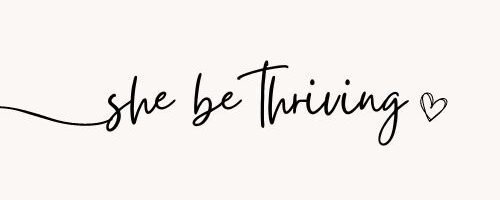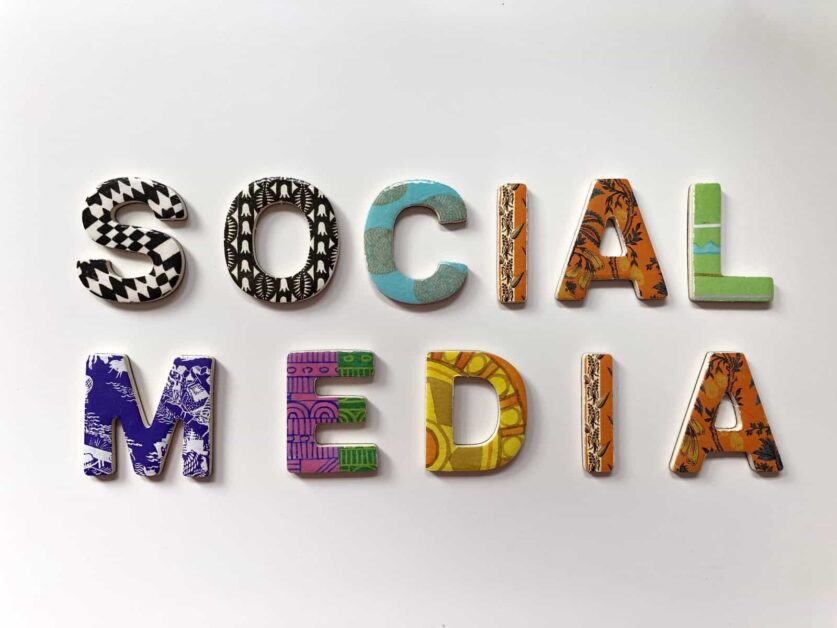How to Overcome Your Deep Fear of Rejection
Practical tips to overcome the fear of rejection
One of the biggest fears human beings have is the fear of being rejected. Fear of rejection can stem from past childhood trauma, broken family relationships, bullying, or being emotionally abused or neglected.
I wanted to write an in-depth post about how to overcome your deep fear of rejection because I struggled with this fear for the majority of my life. The fear of rejection would cripple my confidence and make me doubt myself constantly. It held me back from chasing after my dreams such as even starting this blog.
I was terrified of what people thought about me, and it seemed unbearable for someone to disapprove or reject me. Little did I know, that the little girl inside of me deep down just wanted to be loved and accepted by someone.
After doing a lot of deep personal growth and thought work, I find the fear of rejection way more manageable. I no longer hide in fear of the unknown or how someone would respond. Instead, this fear that had held me back for so long, led me on a journey of love and acceptance.
If you are struggling with this deeply rooted fear of rejection, I am here to help you learn how to stop letting it control your life. In this post, I will cover the root issues of rejection, how to take action to overcome it, and also answer more questions regarding the fear of rejection.
So let’s jump right in!
What is the fear of rejection?
The fear of rejection occurs in a situation where the individual feels an uncontrollable amount of fear that they will be rejected or judged by other people. Because of this, the individual may start to avoid social situations or certain scenarios that can leave room for possible rejection. Ultimately, a huge part of our fear for rejection is the fear of getting hurt or feeling pain.
Fear of rejection is a very common human fear. Biologically, we are designed with a desire for belonging, and so, we look at rejection as the opposite of acceptance and belonging.
Where did the root of fear of rejection come from?
The fear of rejection can stem from evolutionary as well as mental health factors. Some evolutionary factors go way back to our ancestry, when the most common survival method was to stick together. Being rejected from a tribe was one of the most terrifying things that could happen to an individual.
It meant having to survive alone as an outcast. It’s no wonder why the fear of rejection is so deeply rooted in us – it also played a huge role in our ancestry!
Other evolutionary factors include: being compared to others, fear of isolation, fear of judgment, fear of embarrassment, or fear of being alone.
Whew! Even from way back, our ancestors dealt with a lot of fears that became instilled in our society as a result. However, a huge reason why fear became a driving need for survival was the desire and need for safety. Just like our ancestors, we have a natural tendency to protect ourselves from hurt and pain so that we can feel safe.
When you really understand that, you may feel some compassion towards all the times you’ve avoided opportunities, situations, and goals because really, your mind kept thinking, DANGER. DANGER.
But now, we can realize that there is no danger and in fact, you will be okay. Obviously this is easier said than done, and so, it takes practice to do this mindset shift. In this article, I’ll tell you what these mindset shifts are and how you can start implementing them, so keep on reading!
What are the consequences of giving into the fear of rejection?
Let’s first discuss the consequences giving into the fear of rejection. I’m sure you may have a few of them in mind which is probably why you’re reading this post. I know a huge part of you wants to break free from the fear of rejection and stop letting it take control of your life.
Just as important as it is to understand where the root of rejection came from, we need to acknowledge what the impact of it does to us, so that we can utilize strategies that will help you effect change.
So how does the fear of rejection affect you? Common symptoms look like:
- Lack of self-confidence when you interact with others
- Feeling like you have to wear different “masks” to please others
- Afraid to share your own thoughts and opinions
- Lack of assertiveness when you speak to others
- Feelings of guilt and shame when you say “no” or make a mistake
- Lack of sense of personal identity
- Avoid situations or opportunities that have a potential risk of you making a mistake
- Being very self-conscious of your surroundings and how others view you
- Obsessing over your appearance and how you look to others
- Feeling socially isolated
- Have difficulty expressing your needs and wants to others
“It is not rejection itself that people fear, it is the possible consequences of rejection. Preparing to accept those consequences and viewing rejection as a learning experience that will bring you closer to success, will not only help you to conquer the fear of rejection, but help you to appreciate rejection itself.”
– Robert Foster Bennett
If you checked off the majority of these symptoms, that is so okay! Please don’t feel bad about yourself, my friend. The first step to growth and change is acknowledging and accepting where you are at right now. The best is yet to come, and I’m here to help you! So how can you start taking action?
How can I overcome my deep fear of rejection?
Maybe you’ve heard of rejection therapy by Jia Jiang, who became known for doing 100 days of rejection therapy. You can find his list here.
Rejection therapy can be very helpful for those who need motivation or accountability to push themselves out of their comfort zone. Maybe this is an opportunity for you to face your fear of rejection.
I’ve put together a 30-day FREE challenge that pushes you to do a specific challenge on that day. If you want to start conquering your fear of rejection, this 30-day challenge is a perfect way to get started. Sign up with your email to get the free challenge delivered straight to your inbox!
3 Powerful Tips to Overcome Your Deep Fear of Rejection
1. See Rejection As Part of Life NOT A Failure
In hindsight, rejection has absolutely NOTHING to do with you. When we get rejected, it’s easy to fall into the belief that we’re a failure or not good enough. But that is not true. Let me give you some examples.
- If you get a rejection from a job offer, does this mean you’ve failed? NO! That just means there’s a better job opportunity for you out there and your assets and strengths could be more appreciated elsewhere.
- If you get rejected from your crush, does this mean you’re not good enough? NO! That just means your crush wasn’t the right person for you and of course, it hurts to get turned down by someone you like. It sucks. However, you getting rejected has nothing to do with your worth or value as a human being.
If you can start to see rejection as a part of life, it’s easier to accept obstacles and difficulties that come your way. Over time, you’ll find yourself no longer attaching your worth to rejection or how others perceive you.
2. Say YES to the Fear of Rejection
Um, what?! You’re telling me to say yes to the fear that I want to do everything to avoid? Yes, that’s exactly what I’m saying. Hear me out. This is such a powerful mindset hack that you can use in your everyday life, starting now. Let me ask you this: What would it look like for you to say YES to the fear of rejection?
I want you to really think about this. What would you be doing right now if you said yes to rejection? Would you start that dream project of yours you’ve been putting a hold on? Would you go on dating apps and initiate conversations with other people?
Would you confess your feelings to someone that you’ve had a crush on for a while? Would you start that Youtube channel? Or would you give yourself the chance to be vulnerable and be more accepting of who you are?
Dear friend! Just imagine the growth and confidence that would come with the power of saying yes to your fear. I know how scary and terrifying it can be, but I encourage you to start small and gradually build your way up.
3. Have compassion on yourself
The top 2 tips above are huge mindset shifts that you can start applying right now. I did want to add in this tip because I think it’s just as important, if not more important!
I am a HUGE advocate for the topic of self-compassion. I first learned about self-compassion through the self-compassion guru herself, Dr. Kristin Neff. I highly recommend reading her book, Self-Compassion: The Proven Power of Being Kind to Yourself, as it is filled with research-based evidence on the benefits of compassion and how to apply it in your life.
It’s one thing to get rejected, but it’s a whole other thing on how you react to rejection. It’s usually what we say to ourselves after getting rejected that is what can either feed into the fear or dispel it.
Do you find yourself saying these negative thoughts: I’m incompetent. I’m not good enough. I’m a failure. I’m worthless. If so, it’s actually so okay to think that. It takes time to rewire your negative thoughts. And this is where self-compassion comes in.
When you start to engage in negative self-talk, I want you to stop yourself as best as you can. And tell yourself these words: This is really hard for me. This hurts. Everyone has gotten rejected at some point in their lives. So may I be kind to myself in this moment. (Dr. Kristin Neff’s book goes more in-depth with how to speak to yourself with compassion)
Keep in mind that if you haven’t really engaged with self-compassion, it will take time to get used to acknowledging and validating your emotions. The more you continue to practice self-compassion, the easier it becomes.
Frequently Asked Questions
The last thing you need to know about fear of rejection
- Remember, fear of rejection is just an emotion. Fear is an emotion. Choose to see the fear of rejection as a part of life, rather than a failure. Say yes to the fear of rejection. What would saying yes to the fear of rejection look like for you?
- Lastly, give yourself the gift of compassion when you experience rejection or try to avoid it. Self-compassion is a skill that takes time to develop and strengthen, but over time, it will become easier. You can do it!
- If you’ve read this far, I really appreciate it. If you found this article helpful and believe this could benefit someone else as well, I’d love if you could share this post with them!
Related articles
Challenge Negative Thoughts: 5 Effective Ways to Change Them
The Ultimate Guide to Setting Healthy Relationship Boundaries








2 Comments
Comments are closed.